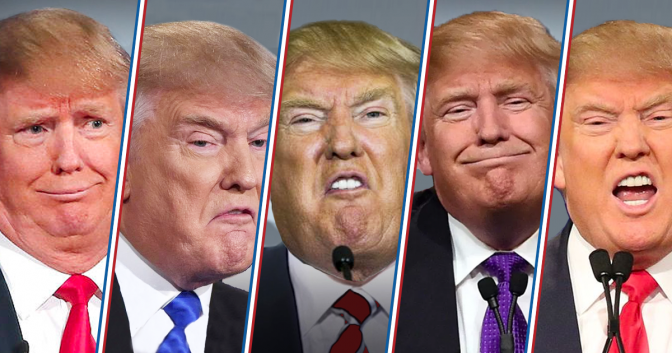Gauging the Trump Effect on Congress and the DOJ

Twenty-nine states have now legalized the therapeutic use of cannabis. In nearly all of these states, legislative provisions authorize state-licensed entities to grow and dispense marijuana or marijuana-infused products. In addition, eight states have legalized the adult use of cannabis, and retailers and sellers must possess a state-issued license in order to engage in commercial activity. For the past few years, two important federal actions—the Cole Memorandum and the Rohrabacher-Farr Amendment— have assured that these activities can take place largely free from federal interference. But it may be up to the incoming Trump administration to decide whether or not these protections survive.
The DOJ: The Cole Memo
Voters in Colorado and Washington shocked the world in November 2012 when majorities in both states decided in favor of legalizing the retail sale of cannabis to anyone aged 21 or older. The votes placed regulators in both states in uncharted territory. Up to that point, no state had ever licensed businesses to legally grow and sell pot to adults—activity that runs afoul of federal laws. The obvious question at the time was, what, if anything, would the Obama administration do about it?
On Aug. 29, 2013, then-Deputy Attorney General James Cole issued a Justice Department memorandum to U.S. attorneys outlining the administration’s position on adult-use legalization, which directs prosecutors to permit state-licensed marijuana facilities to operate without federal interference unless it can be established that they’re engaging in behavior that clearly violates “certain enforcement priorities that are of particular importance to the federal government,” such as the distribution of cannabis to minors or to non-legal states. Since issuing the Cole Memo, the Feds have taken virtually no prosecutorial action against state-recognized producers or retailers.
Congress: The Rohrabacher-Farr Amendment
In 2014, after nearly a decade, cannabis advocates convinced a majority of Congress to enact legislation—the Rohrabacher-Farr Amendment, sponsored by California Reps. Dana Rohrabacher and Sam Farr—protecting the rights and activities of medical marijuana patients and providers. (Since Farr recently retired, it’s now known as the Rohrabacher-Blumenauer Ammendment.)
The amendment, codified into law by President Obama that December as part of the Fiscal Year 2015 Commerce, Justice and Appropriations Bill, states: “None of the funds made available in this act to the Department of Justice may be used… to prevent… states… from implementing their own state laws that authorize the use, distribution, possession or cultivation of medical marijuana.” Congress re-approved the amendment in 2015, and this past August, the Ninth Circuit Court of Appeals rejected Justice Department efforts to sidestep the law. The three-judge panel ruled unanimously that the amendment’s language should be interpreted in the broadest manner possible, and that those who are engaged in state-compliant activities are no longer fair game for federal prosecutors. In December 2016, Congress re-authorized the amendment as part of a short-term spending bill that expires on Apr. 28, 2017.
Looking Ahead: A Hazy Future
The outlook for each of these measures in the Trump administration is uncertain. Because the Cole Memo is intended as a set of guidelines for U.S. Attorneys and does not carry the weight of law, it can readily be ignored or even rescinded by the new administration. And that’s likely to happen if the President Trump pick for Attorney General, militant prohibitionist Sen. Jeff Sessions, is confirmed by the U.S. Senate.
The Alabama politician has a long and outspoken history as Congress’ leading anti-pot zealot. He criticized the Obama administration for failing to enforce federal prohibitions in legal marijuana states, and once infamously stated, “Good people don’t smoke marijuana.” Absent the explicit assurances of the Cole Memo, it’s unclear whether state lawmakers and regulators will continue to move forward with licensing and taxing adult-use marijuana sales—activities that potentially place both cannabis businesses and state officials at risk of federal prosecution.
The ultimate fate of the Rohrabacher-Blumenauer Amendment is also murky although congressional support for the measure has grown in recent years (it passed by a 242-186 margin in 2015), some have speculated that House Speaker Paul Ryan will no longer permit marijuana-related budgetary amendments to be debated on the House floor. Nonetheless, those closely involved in the process remain confident: Rep. Rohrabacher told Politico in December that he expects the amendment to be reauthorized for a third year by Congress, and that he believes that a Sessions-run Justice Department will abide by its provisions.
“He’s a strict constitutionalist who believes in the rule of law,” Rep. Rohrabacher commented. “I would expect that he’ll respect the prerogative of individual states to determine their own laws involving strictly intrastate commerce.”
How to Get Involved
NORML is urging people to tell their senators that they oppose Sessions as the next AG, and that Congress should reauthorize the Rohrabacher-Blumenauer Amendment, and is issuing updates and action alerts at norml.org/act.
If you enjoyed this Freedom Leaf article, subscribe to the magazine today!

